Global Polio SBC Newsletter: Issue 20 | October 2024
|
In this edition, see how teams are driving polio vaccination efforts across Gaza, Ethiopia, and Pakistan. Explore inspiring leadership stories from Benin and DRC, and prepare for World Polio Day with innovative SBC strategies 🌍💉✨ |
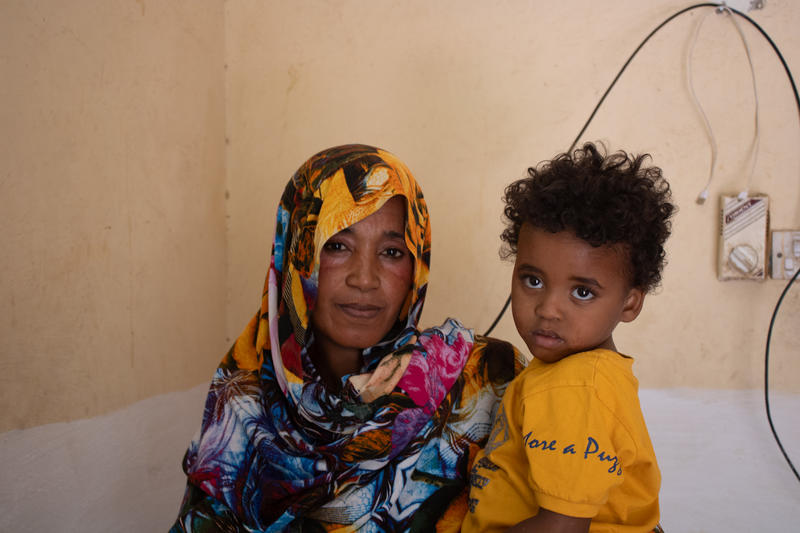
Message from the Polio SBC Team
Dear Team,
With polio cases rising in Pakistan, Afghanistan, and several African countries, our work is more urgent than ever. Recent outbreaks of wild poliovirus in Pakistan and Afghanistan, alongside circulating vaccine-derived poliovirus (cVDPV) cases in Nigeria, Mozambique, DR Congo, and Gaza, remind us that the fight is ongoing despite progress. These challenges highlight the critical role of Social and Behavior Change (SBC) strategies in ensuring every child receives vaccinations.
This edition showcases how our teams are tackling these pressing issues. From remote areas of Afghanistan, where malnutrition and low vaccination coverage persist, to Pakistan’s urban centers, where youth influencers combat misinformation, your dedication is making a difference. Through SBC workshops, gender-responsive approaches, and innovative community engagement, we ensure no child is left behind.
As World Polio Day approaches, it’s a moment to reflect on achievements and renew our commitment. The Team End Polio campaign brings together athletes, leaders, and influencers to raise awareness. While polio cases have been reduced by 99.9% globally, these recent outbreaks remind us that success requires continued dedication, creativity, and collaboration.
This issue will show the impact of your efforts across Gaza, Benin, Ethiopia, and beyond. Your contributions, along with local leadership, are overcoming barriers to vaccination and finding innovative solutions.
Thank you for your unwavering commitment and dedication. Together, we will make polio history.
Best regards,
Sheeba Afghani
Senior Social and Behavior Change Manager, Polio
On behalf of the Global Polio SBC Team
🌟 This Newsletter Highlights 🌟
Welcome to our action-packed Q3 newsletter, showcasing global efforts to combat polio and advance social and behavioral change strategies. Here’s what’s inside:
Country Updates:
- Afghanistan 📝 Children in Nuristan face high polio risks. Learn how integrated health efforts are protecting them.
- Pakistan 🌐 Youth influencers combat vaccine misinformation through digital platforms and community engagement.
- Gaza 🎯 Nearly 560,000 children vaccinated amidst conflict. SBC efforts play a key role in building trust.
- Cameroon 🚚 See how cold chain management ensured vaccines reached every child, despite logistical challenges.
- DRC 👨👩👧👦 Gender-focused strategies are transforming how families in six provinces view vaccination.
- Benin 👑 King Fousséni’s leadership inspired a community-wide effort to vaccinate every child against polio.
- Sudan 🤝 Community trust committees are reversing vaccine refusals, even in conflict zones.
- Ethiopia 🐾 Vaccination campaigns return to Tigray after seven years. Discover how social mobilizers reach remote areas.
- Malawi ❤️ UNICEF staff swap office work for fieldwork, ensuring every child receives polio vaccines.
Global Updates:
- Team End Polio 🌍 Athletes and influencers unite to promote vaccine acceptance and fight misinformation.
- A Song of Hope 🎶 Participants at the Cairo SBC Workshop create a powerful song to inspire polio vaccination.
Learning and Inspiration:
- Explore new learning opportunities! 📖 From the KM for UNICEF Results eCourse, the TechNet21 Gender Webinar, and insights into Pashtun women’s role in vaccine acceptance, to behavioral change lessons from "Nudge" by Thaler & Sunstein, we have resources to fuel your motivation and knowledge.
Open Polio & SBC Vacancies:
- Check out the latest opportunities to contribute to polio and SBC efforts worldwide!
Be a part of our journey to end polio! Together, with the relentless efforts of our global teams, partners, and communities, we are closer than ever to a polio-free world. 🌍💪 Let’s continue to make a lasting impact, one vaccination at a time. 💉✨
Country Updates
AGHANISTAN
In the remote mountain village of Samarbagh, Nuristan, children face heightened risks of polio due to malnutrition, low vaccination coverage, and poor access to basic healthcare. The story of two-year-old Roqia, who contracted polio earlier this year, highlights the critical need for comprehensive interventions that address nutrition, immunization, and sanitation in these isolated communities. With new combined efforts in polio vaccination, nutrition, and WASH programs showing success in other high-risk areas, there is hope that similar approaches will protect vulnerable children in Nuristan.
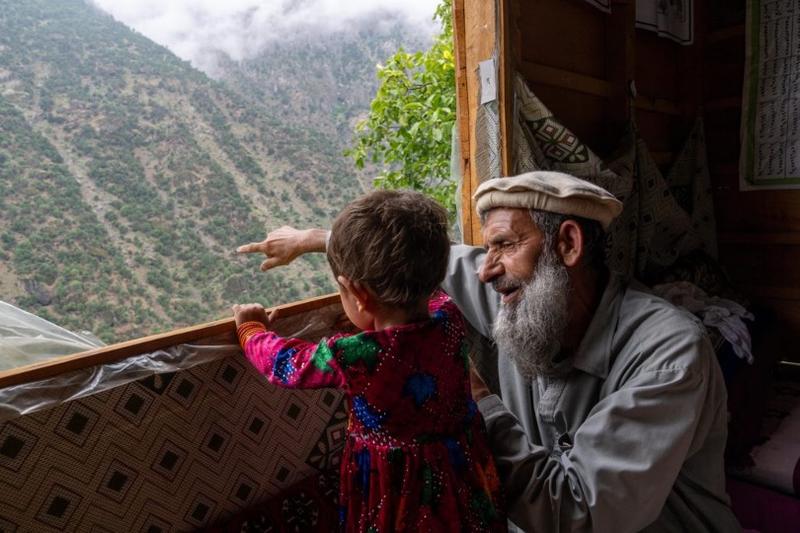
PAKISTAN
In Pakistan, the uInfluence initiative is empowering young people to tackle vaccine misinformation, a major barrier to eradication efforts. By leveraging digital platforms, youth influencers are spreading accurate information about vaccines, addressing common myths, and engaging communities to increase vaccine acceptance. The first in-person uInfluence event in Lahore brought together over 50 influencers to connect digital advocacy with real-world health outcomes, highlighting the critical role of youth in supporting polio eradication efforts.
GAZA
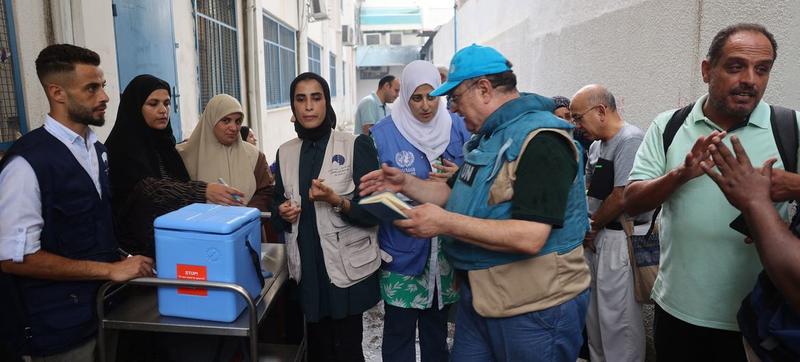
In September 2024, amidst ongoing conflict, UNICEF, WHO, UNRWA, and their partners successfully completed the first phase of a polio vaccination campaign across Gaza, vaccinating nearly 560,000 children under 10 years old with the novel oral polio vaccine type 2 (nOPV2). This multi-phase campaign, targeting 640,000 children, aims to stop the spread of polio. Social and behavioral change (SBC) efforts, combined with community outreach, have been crucial in mobilizing families, building trust, and addressing vaccine hesitancy, despite the challenging conditions. As the campaign progresses, these efforts remain essential to ensuring no child is left unvaccinated. Read more about it here.
CAMEROON
In Cameroon’s Littoral region, UNICEF and its partners successfully protected children through efficient cold chain management and vaccine distribution during the yellow fever vaccination campaign. Drawing from similar polio eradication efforts, social listening also played a vital role in addressing misinformation and rebuilding public trust.
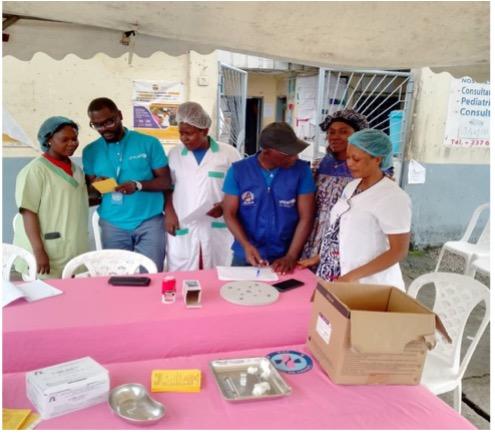
DEMOCRATIC REPUBLIC OF THE CONGO (DRC)
In the DRC, UNICEF partners are using innovative gender-focused strategies to increase polio vaccination coverage. By engaging both men and women, as well as community leaders, these programs are transforming how families view vaccination, particularly in remote areas where vaccine uptake has historically been low. Through positive messaging and inclusive dialogues, communities are becoming more aware of the importance of protecting their children from polio. Watch how these efforts are driving real change in six provinces and helping to safeguard children’s health. WATCH
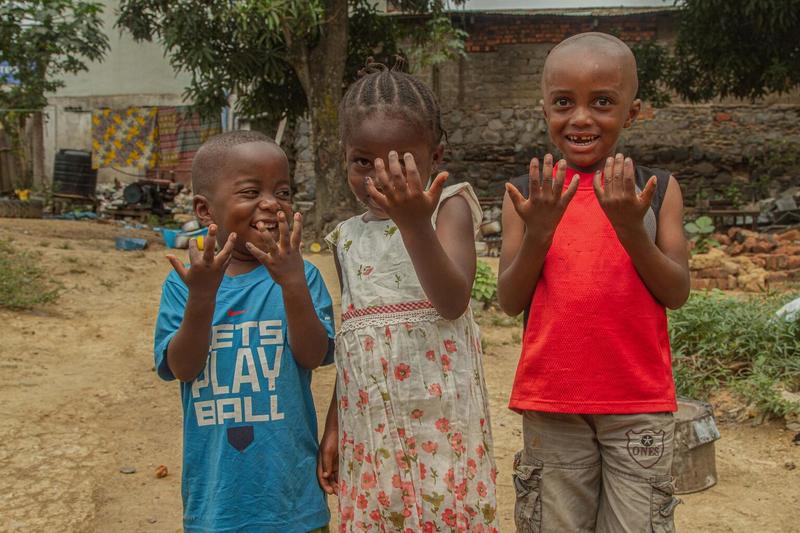
- In Bena Leka, the Mayor leads by example, bringing his own child for vaccination and mobilizing his community to eradicate polio. READ
- In Ototo, a mother turned advocate shares her personal journey of overcoming polio in her family and mobilizes others to vaccinate their children. READ
- Find out how health workers in the Luiza Health Zone are tackling logistical challenges to ensure children in remote areas receive critical vaccines. READ
- Discover how fathers in rural areas are breaking social norms and taking the lead in getting their children vaccinated, setting an example for their communities. READ
BENIN
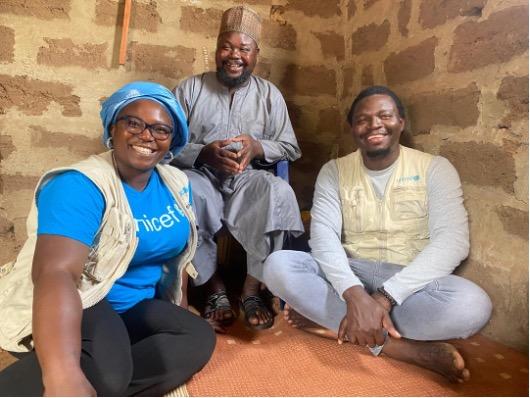
In Djougou, local leaders are stepping up to fight against polio. King SAYO BOUKARI Fousséni’s commitment to ensuring that every child in his royal compound is vaccinated has set a powerful example for the entire community. Explore how the leadership of King Fousséni in Kparsi transformed vaccination efforts and led to a successful polio response.

SUDAN
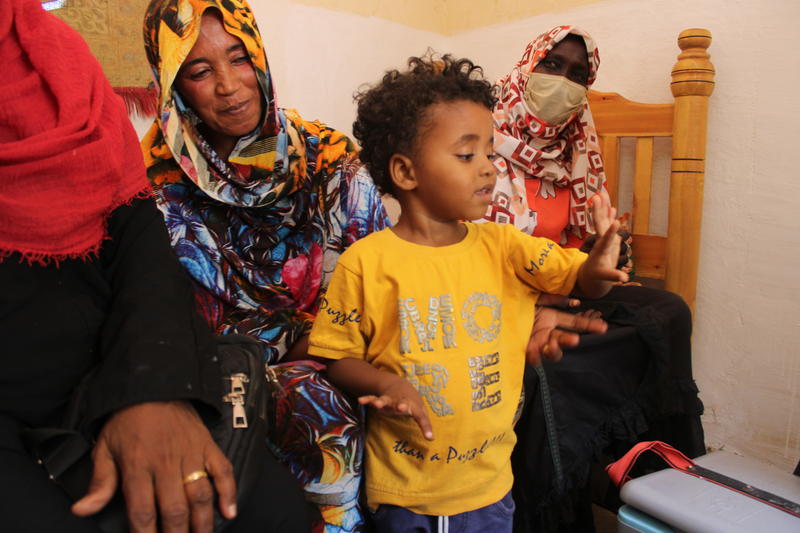
In the face of conflict and displacement, Sudan’s community trust committees are tackling vaccine hesitancy head-on. Through their tireless efforts, dedicated members like Samira and Zahra are reversing refusals and building vaccine confidence in the most marginalized communities. Discover how these trust-building committees, supported by UNICEF and partners, are ensuring that every child under five receives lifesaving polio vaccines.

ETHIOPIA
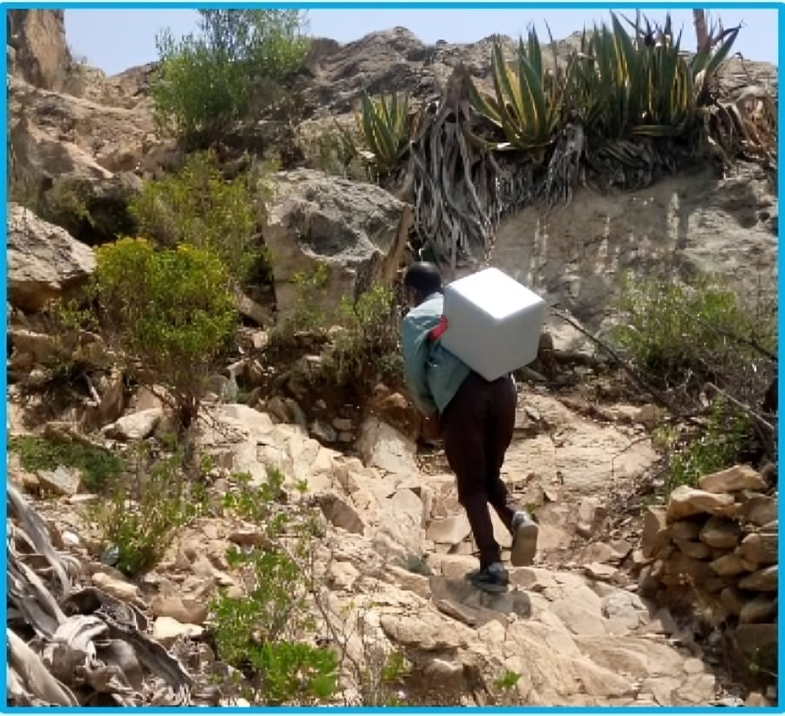
After a seven-year gap, polio vaccination campaigns have returned to Ethiopia’s Tigray region, where conflict and unrest have disrupted routine immunization. With UNICEF and WHO's support, social mobilizers are playing a key role in reaching remote areas, overcoming logistical challenges, and ensuring that every child receives lifesaving polio vaccines. Discover how these dedicated efforts, including the use of donkeys to transport vaccines to hard-to-reach areas, are protecting 1.7 million children from polio in the region.

MALAWI
In Malawi, UNICEF colleagues have traded their desks for the frontline, swapping office work for hands-on fieldwork to support the ongoing polio vaccination campaign. By stepping into the field, they are experiencing firsthand the challenges and triumphs of reaching remote communities with life-saving vaccines. From trekking long distances to coordinating with local health workers, their efforts are helping to ensure that no child is left unprotected in the fight against polio. This remarkable shift showcases their dedication to Malawi’s polio outbreak response. READ
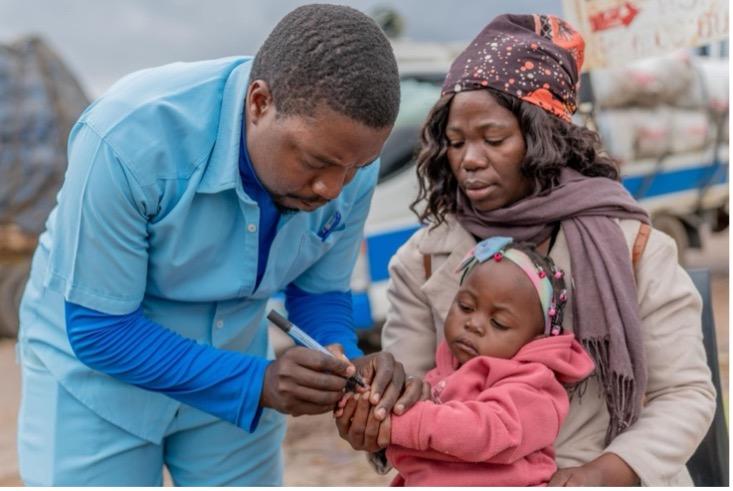
For a more personal perspective on the fight against polio, read the story from Shorai Nyambalo-Ng’ambi, a UNICEF Malawi SBC Specialist, who shares her journey as both a mother and a dedicated professional working to protect children in Malawi.
Global Updates
Team End Polio: Champions for Change in the Fight Against Polio
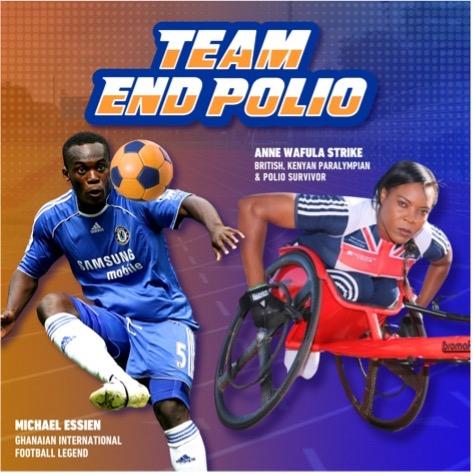
The Global Polio Eradication Initiative (GPEI) has launched Team End Polio, bringing together athletes, global leaders, and advocates to promote social and behavioral change in the fight against polio. By leveraging their influence on social media and at major sporting events, these champions aim to combat misinformation, encourage vaccine acceptance, and rally communities to support polio eradication. With 99.9% of cases already reduced, the final push requires continued efforts to shift attitudes and behaviors in the remaining affected areas. Learn how Team End Polio is raising awareness and how you can get involved at teamendpolio.org.
Spreading the Message: A Song of Hope from Cairo's Polio SBC Workshop
In May 2024, UNICEF hosted a Polio Outbreak SBC Workshop in Cairo, bringing together 20 experts from key MENA countries to strengthen capacities in managing polio outbreaks. Participants collaborated on innovative strategies to address vaccine hesitancy, enhance community engagement, and reinforce public health messaging. One unique outcome of this workshop is a creative song, produced by the participants themselves, promoting polio vaccination. Watch the video and listen to the song to see how creativity is driving polio eradication efforts in the region. Read the full story
Learning and Inspiration
🌎 Webinar: UNICEF Global SBC Polio Exchange Series – Insights from Country Offices on Outbreak Response and Community Engagement
The UNICEF Polio SBC team launched the Global SBC Polio Exchange Webinar Series to foster knowledge sharing and collaboration in the fight against polio. This dynamic series features upcoming sessions in November and December, offering unique insights from Country Offices. In November, join us to explore outbreak response strategies in Gaza and Sudan, navigating complex and insecure environments. In December, learn how Guinea and DRC enhance community engagement and utilize digital tools to strengthen risk communication. Don't miss these opportunities to engage with global partners and discover practical solutions for polio eradication! Register now
🎓 Learning Opportunity: Knowledge Management for UNICEF Results (Basics) eCourse
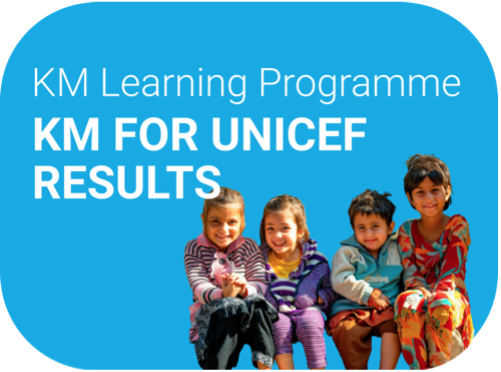
UNICEF staff can now build essential knowledge management skills through the Knowledge Management for UNICEF Results (Basics) eCourse. This course covers key concepts, the value of KM, practical tools, and approaches, and how to apply KM in office settings. With five modules, it’s designed for all staff, especially KM focal points and managers, to enhance their ability to support and implement KM practices. The course takes about 60 minutes, with an extra 30 minutes for those wanting to dive deeper into examples and tools. Enroll
📹 Webinar Recording: Gender-Responsive Immunization in Emergencies
As we continue to strengthen polio eradication efforts globally, understanding how emergencies impact different genders is crucial to ensuring no one is left behind. The TechNet21 Gender Webinar 2024 explores how immunization services can be made more inclusive and effective in outbreak and conflict settings by addressing gender-specific needs. Drawing on real-world examples, this session highlights how integrating gender analysis into health emergencies can improve outcomes for women and marginalized groups, while also reinforcing equitable access to vaccines. Don’t miss this opportunity to deepen your understanding of gender-responsive immunization. Watch the webinar in English or French
📚 Reading: The Central Role of Women in Polio Vaccine Acceptance Among the Pashtun in Pakistan – Insights from Resdev Study
A recent study sheds light on the powerful, yet often overlooked, role of women in Pashtun households in shaping polio vaccine acceptance or refusal. It found that mothers, in particular, play a pivotal role in these decisions, highlighting their previously unrecognized agency. This study is one of the few ethnographic explorations into the influence of Pashtun women on health-related decisions, suggesting that future polio campaigns in Pakistan could significantly benefit by placing mothers and female caregivers at the center of vaccine outreach strategies. Discover the full findings and be inspired by the untapped potential of these women here
Nudge: Improving Decisions About Health, Wealth, and Happiness by Richard H. Thaler and Cass R. Sunstein
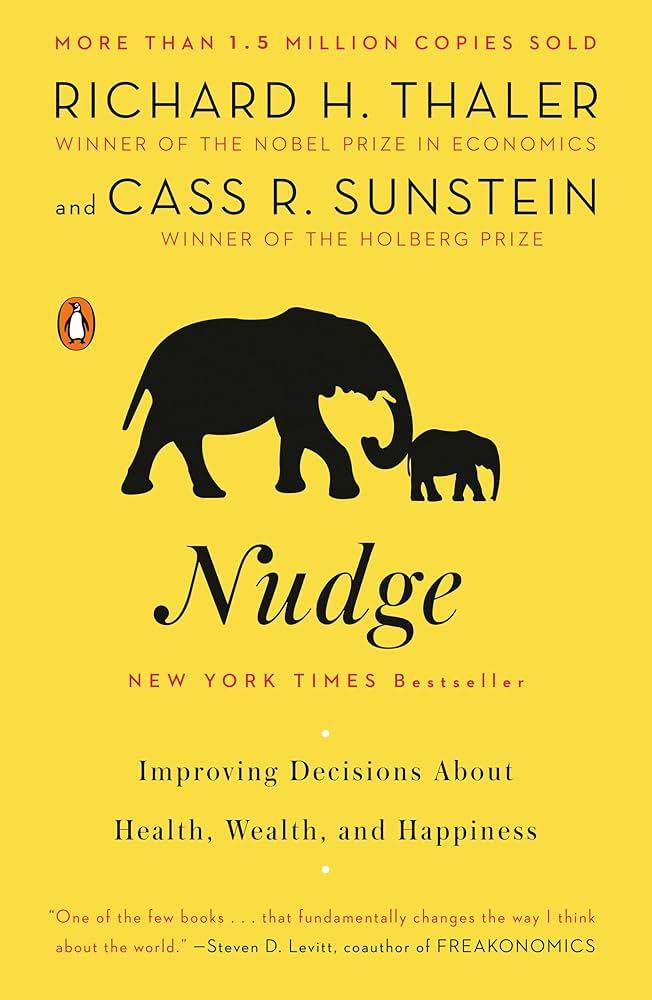
A modern classic by Nobel Prize winner, this book explores how small changes in the way choices are presented can lead to better health decisions. Its insights into behavior change offer valuable lessons for polio eradication efforts, from increasing vaccine acceptance to promoting positive health practices.
Anyone can submit a country or regional update.
Please email Daria Shubina ([email protected])

